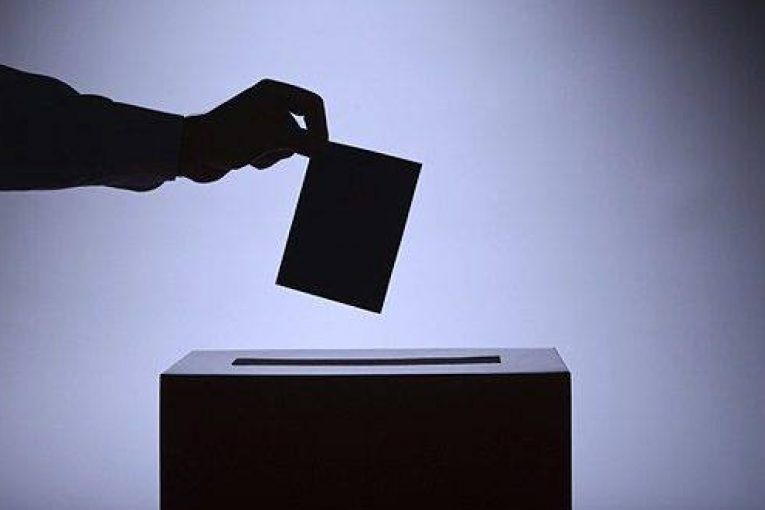
اعداد :
- د. فاطمة أمراح – باحثة في القانون العام والعلوم السياسية تخصص علاقات دولية – جامعة محمد الخامس كلية العلوم القانونية والاجتماعية والاقتصادية أكدال الرباط
- هدى بنيفو – باحثة بسلك الدكتوراه – جامعة محمد الخامس كلية العلوم القانونية والاجتماعية والاقتصادية أكدال الرباط -المغرب
- المركز الديمقراطي العربي
- مجلة القانون الدستوري والعلوم الإدارية : العدد الخامس عشر أيار – مايو 2022 المجلد 5 ، مجلة دولية محكمة تصدر عن المركز الديمقراطي العربي المانيا- برلين.
- تعنى المجلة في مجال الدراسات والبحوث والأوراق البحثية في مجالات الدراسات الدستورية والعلوم الإدارية المقارنة – نشر البحوث في اللغات ( العربية – الفرنسية – الإنجليزية )
للأطلاع على البحث “pdf” من خلال الرابط المرفق :-
الملخص :
تعد المشاركة السياسية من أهم آليات الديموقراطية، ومؤشرا حقيقيا يقيس التقدم المحرز لأي بلد في عملية إشراك المواطن في صنع القرار السياسي وتتبعه وتقييمه. حيث تعتبر المشاركة السياسية إحدى تعبيرات وجود الديموقراطية، وذلك لارتباطها الوثيق بطبيعة الدولة ومؤسساتها، وهي تؤثر واقعيا على طبيعة العلاقة التفاعلية بين الدولة والمجتمع، ومدى صحة مساهمتها من جهة في تمكين أفراد المجتمع من الاختيار الطوعي لمن يحكمه، ومن جهة أخرى تمكين النخب الحاكمة من الشرعية المبرِّرَة لحُكْمِها.
وشهد المغرب سنة 2021 ثالث انتخابات تشريعية في ظل الدستور الجديد، وينص الفصل 47 منه على تعيين الملك لرئيس الحكومة من الحزب المتصدر للانتخابات التشريعية، وهو ما يعني قيادة الحزب الحاصل على أكبر عدد من المقاعد النيابية للحكومة. وقد أسفرت نتائج الانتخابات التشريعية لسنة 2011 وسنة 2016 عن تصدر حزب العدالة والتنمية، ومكنته من قيادة الحكومة لولايتين تشريعيتين. وتم إبعاده خلال الاستحقاقات الانتخابية الأخيرة لسنة 2021 باعتماد آلية التصويت العقابي. إذ انتقل الحزب إلى المرتبة الثامنة بفقدانه حوالي %90 من مقاعدة، فمن 125 نائبا برلمانيا إلى 13 نائبا ثلثيها من النساء.
تهدف هذه الورقة إلى محاولة تفسير المحددات وراء فقدان الناخب المغربي الثقة في حزب العدالة والتنمية واعتماد التصويت العقابي، كآلية سحب الثقة للحزب الذي قاد حكومتين متتاليتين ولم ينجح في اقناع الناخب المغربي لولاية ثالثة بسبب قراراته ذات الأثر السلبي على الوضعية الاقتصادية والاجتماعية للمواطنين.
Abstract
Political participation is one of the most important mechanisms of democracy, and a real indicator that measures the progress made by any country in the process of citizen participation in political decision-making, tracking and evaluation. Where political participation is one of the expressions of the existence of democracy, because it is closely related to the nature of the state and its institutions, and it realistically affects the nature of the interactive relationship between the state and society, and the validity of its contribution on the one hand in enabling members of society to voluntarily choose who governs it, and on the other hand empowering the ruling elites with legitimacy justification for their judgment.
In 2021, Morocco witnessed the third legislative elections under the new constitution. Article 47 of it stipulates that the King appoints the head of government from the party that leads in the legislative elections, which means the leadership of the party with the largest number of parliamentary seats in the government. The results of the legislative elections of 2011 and 2016 resulted in the leadership of the Justice and Development Party, and enabled it to lead the government for two legislative terms. He was expelled during the last electoral elections of 2021 by adopting the punitive voting mechanism. The party moved to eighth place, losing about 90% of its seats, from 125 deputies to 13, two-thirds of which are women.
This paper aims to try to explain the determinants behind the Moroccan voter’s loss of confidence in the Justice and Development Party and the adoption of the punitive vote, as a mechanism of no-confidence for the party that led two successive governments and did not succeed in convincing the Moroccan voter for a third term because of its decisions that have a negative impact on the economic and social situation of citizens.
.
رابط المصدر:
